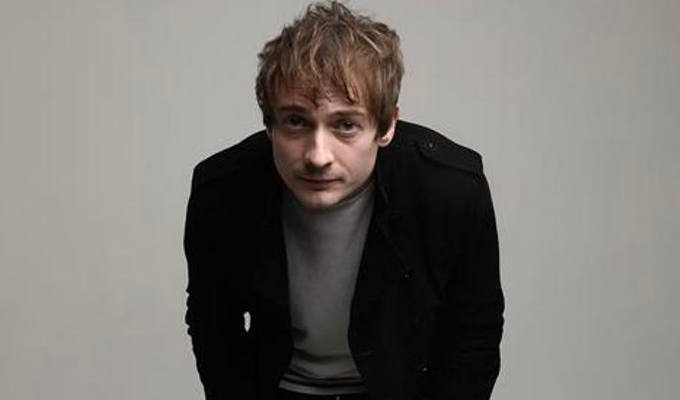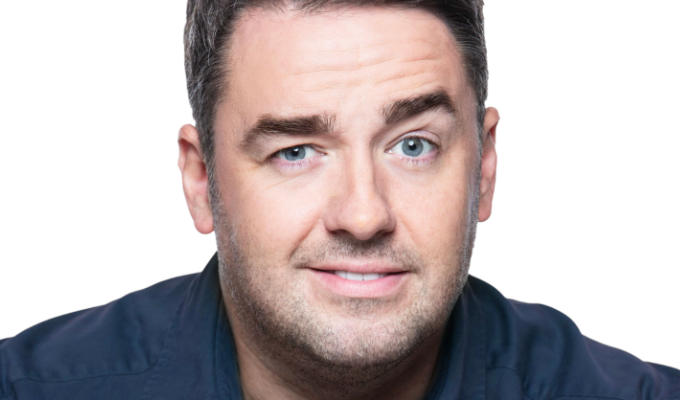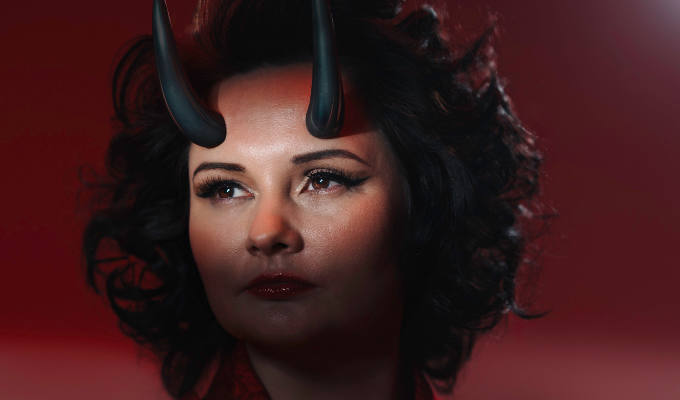Twitter Trial Benefit review
by Julia Chamberlain at the Bloomsbury Theatre, London
I’ve never yet been to a sparsely attended benefit gig, which shows what a compassionate lot comedy-lovers are. This one was no exception, Bloomsbury Theatre was sold out and buzzing.
The context is that man-in-the-street Paul Chambers tweeted in frustration how he would blow Robin Hood Airport sky high if they didn’t get their act together during a period of disruption. It ended in court, with Chambers fined and with a criminal conviction for being menacing. He’s lost his job, and he’s in danger of losing his house and all his assets if his appeal goes the wrong way, as QCs cost a lot.
Stephen Fry was at his headmasterly best introducing the night and the background to the case with customary warmth, intelligence and eloquence.
He managed to expand the Paul Chambers case to encompass the much broader issues of human rights, freedom of speech and the British ability to ‘get it’ with our innate ability to take the piss, see the funny side or not take ourselves too seriously.
Such is his commitment to Chambers’s cause that he declared himself ready to go to jail on the same basis, for it must seem that re-tweeting Chambers comment must be to re-issue the threat. He filled the audience with a cosy glow of what top chaps we all are in Britain and getting behind one of our own unfortunates was the right thing to do .
By contrast, the host of the evening Al Murray’s Pub Landlord took charge and metaphorically blew a raspberry at the Twitter Trial One and proceeded to describe him as a knucklehead/idiot/twerp and variations on the theme for the rest of the night, while keeping the show moving along like he’d just called last orders. I never tire of seeing the same joke work again and again with him, it’s licensed bullying by any other name, but there’s always a reprieve for the victim.
Man-of-the-moment Jack Whitehall was first stand-up of the night, riffing on having met ‘terrorist Paul Chambers’ and the possibility of terrorists doing the job in order to meet celebrities. His material was quick, witty and he was very gracious. I think he’s still literally finding his voice on stage, even in this short spot he ranged across his naturally, easy Home Counties smoothness, to a bit of Russell Brand sub-Essex, a dash of urban London and back again. He’s had an expensive education, he should know that there’s nothing wrong with sounding like it.
The wonderful Susan Calman was up next, with her supposedly threatening Glasgow accent. Warm, energetic, smart and funny she gave a nice personal set on her background in law and some insight into the profession, and kept the atmosphere of comedy delight in the room.
Gary Delaney, a much quoted twitterer, absolutely ripped the room with his devastating one liners. With a smart audience like this his jokes were massively appreciated and he gave a proper set rather than his views on the case. He really gave the evening some momentum in his short set.
Stephen Grant squeezed the brakes again even so slightly, with his joyful forays into linguistic pedantry with some old material (inaccurate song lyrics) and some new (nationalities used as figures of speech to create a narrative, a la Punt and Dennis). Grant has never been short on confidence, and now his voice and performance have acquired extra resonance, as a properly mature comic. Maybe less boyish and high energy than he was, but more interesting and intense.
Then Rufus Hound strolled on, describing the paucity of male language (‘Wa-hey ‘will really cover the appropriate reaction to many social situations,) and seemed to delight the audience just by being supercilious. He got a huge reaction by replaying a recording of himself shouting down Edwina Curry on Radio 5 Live a few months ago. It seems Edwina Curry is one of those code words, like Daily Mail or vegetarian that comedians use as a shortcut to get an audience united in contempt and save the bother of actually being funny.
The interval allowed the audience to tweet in their comments to be broadcast on the big screen. My God, that was depressing. Nothing interesting, witty, funny, relevant, necessary, informative came out of that, and the comments rolled in. As just one person observed, plainly the only comedians in the room were on stage.
David Alan Green took the stage next. He is Paul Chambers’ lawyer and he cut a dignified and modest figure, explaining some of the complex idiocies of the law in relation to this case. He’s a professional speaker, if you like, as a lawyer, but not a comedian and he absolutely commanded the room’s attention, with pin-drop, respectful silence.
Perhaps the best entrance of the evening came as an Army recruitment video montage played into the darkened auditorium and camouflaged figure with a flash torch commando-rolled on to the stage: Katy Brand as the only woman in the British Army. To be fair, this didn’t raise a shedload of laughs, but her pastiche of Beyoncé’s Single Ladies, in full army fatigues was hard to resist and picked up the energy in the room. Why do benefits always go on so long?
She was followed by David Schneider, who got a massive welcome for being non-specifically recognisable. He was fearless in front of an audience, although not actually armed with jokes, but a long routine which got a huge response for dad-style dancing to about 20 clips. High energy, yes, uninhibited, yes, clowning, yes, but ultimately too long and not that hilarious, although the bravado pulled it off. You can see why straight stands-ups get brassed off with musical comedians, because their BPM artificially raises the tempo of the gig through no virtue of their own.
Robert Popper, producer and writer of Channel 4’s Friday Night Dinner, was not a fluent performer when in the spotlight himself, as he proudly produced some images of ‘things I have posted on Twitter’ and then replayed a couple of prank phone-calls he had successfully perpetrated, illustrated with some deliberately childlike drawings.
You can applaud his desire to show solidarity with the cause, but this was like the end of the night round a mate’s house looking at stuff on the internet, hardly earning its place on the show.
And then IT Crowd and Father Ted writer Graham Linehan, who was disarmingly surprised to find himself on stage, did exactly that and found us some cracking, funny or odd clips from the internet as he spoke intelligently about what a marvellous tool it is.
Unfortunately this really did run on and on, and although it was amusing the show felt like it had run back to front, with all the strong stand-up and laughs in the first half and petering out in the second.
While you can assume this is because the regular acts were scooting off to other gigs, it wasn’t a fair call to load the end of the evening on the shoulders of people who are not primarily live performers. A good cause, but a topsy-turvy show.
Published: 19 Apr 2011






